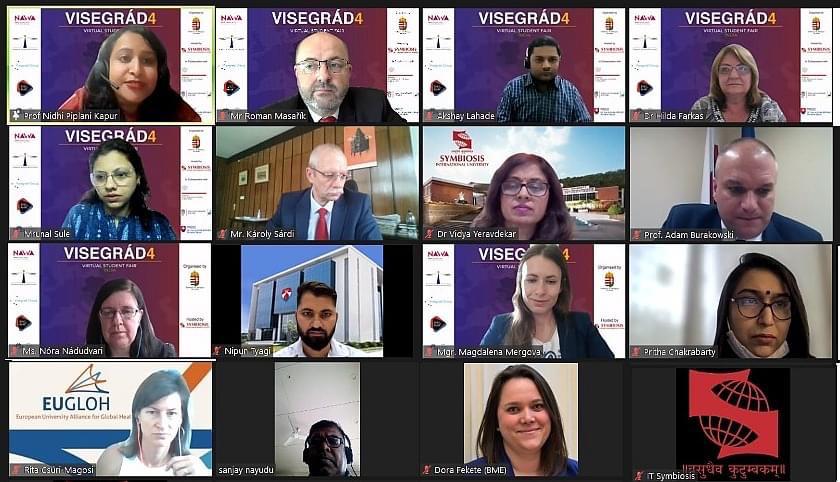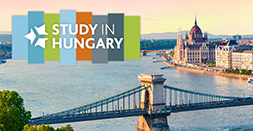On June 8, 2022, the Embassy of Hungary in New Delhi, as the country chairing the Visegrád Group, organized the first "VISEGRÁD 4 Student Virtual Fair" in cooperation with the embassies of the other V4 countries accredited to New Delhi. The event was hosted online by the Symbiosis Centre for European Studies (SCES) at Symbiosis International University (SIU) in Pune. The event had about 150 participants. The aim of the student fair is to promote higher education learning opportunities among Indian students, to showcase the scholarship opportunities offered to them, and thus to support the internationalization efforts of the V4 countries. From a science diplomacy point of view, this was the first V4 event ever held in India.
The program began with a welcome speech by the host, during which Dr. Vidya Yeravdekar, Pro Chancellor (SIU), said she was optimistic about the initiative and hoped that it would open up opportunities not only for students today but also for inter-university exchanges cooperation.
On behalf of the V4 presidency, Dr. Károly Sárdi, Chargé d'Affaires of the Hungarian Embassy, gave a welcome speech, as well as an introductory speech by Prof. Adam Burakowski, Polish Ambassador, Roman Masarik, Czech Chargé d'Affaires, and Roman Mazanec, Slovak Chargé d'Affaires.
Subsequently, Polish, Hungarian, Slovak and Czech experts explained the study opportunities in these countries. On behalf of the Tempus Public Foundation, Ms. Nóra Nádudvari presented the system of higher education, including the benefits that foreign students can enjoy during their studies in Hungary. She pointed out the Stipendium Hungaricum Scholarship Program, which is a great initiative of the Hungarian Government and has become very popular in India, and which provides 200 places a year for Indian students to study in Hungary.
The Czech Republic was represented by the Czech National Agency for International Education and Research, while Poland was introduced by the Department of Programs for Scientists of Polish National Agency for Academic Exchange Poland and Slovakia by the Slovak Academic Information Agency.
At the end of the presentations, students also had the opportunity to ask written questions, which were answered by the lecturers. Most were interested in the admission procedures and requirements.
Overall, the event received excellent feedback, and the initiative was found by participants to be great and it was found worthy of continuation.


